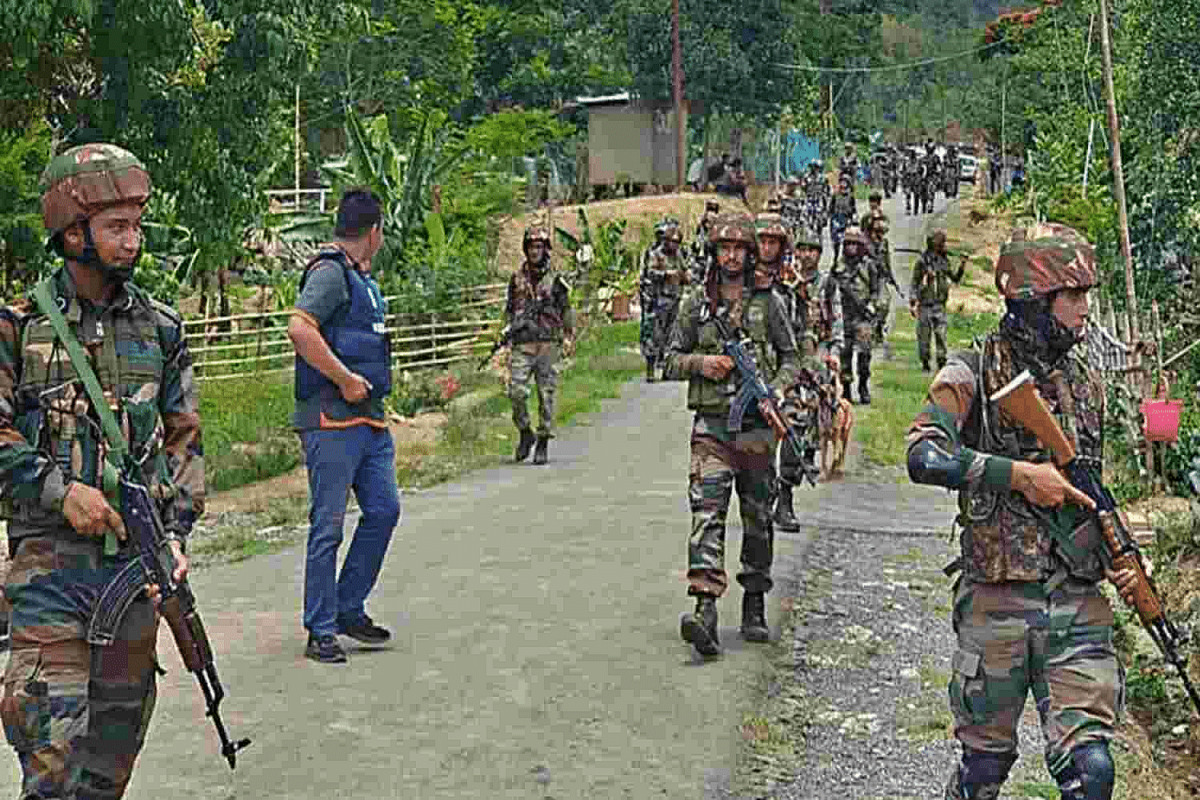India signs Riyadh Design Law Treaty
After nearly two decades of negotiations, the member states of the World Intellectual Property Organization (WIPO) adopted the landmark Design Law Treaty (DLT).
When moderate voices are entirely drowned out, inaction is passed off as strategy, and wanton violence including targeted sexual violence against women is the order of the day, it is as clear an indication as any that societal cleavages run deep.

Representational Image
When moderate voices are entirely drowned out, inaction is passed off as strategy, and wanton violence including targeted sexual violence against women is the order of the day, it is as clear an indication as any that societal cleavages run deep. In Manipur, a number of commentators are now saying that the Meitei-Kuki divide has widened to form an unbridgeable chasm. Of the many causes for this state of affairs, the prolonged inability and/or unwillingness of the N Biren Singh government to take on the Meitei radical and vigilante groups is surely the pivotal factor.
The adjective used by an observer to describe ties between the two communities, “toxic”, is unfortunately entirely accurate. This, in turn, has led leaders on both sides to admit privately that coexistence is not possible for Meitei and Kuki within Manipur, according to media reports. If, indeed, the divide in the state is as permanent as the ground reports suggest, the atrocities we have seen till now will likely fade in comparison with what may yet come. Though the violence has not been one-sided, the Kuki community has borne the brunt of Meitei mobs on the rampage across the state over the past few weeks. Kuki distrust of the state government is understandable as the state law-enforcement machinery has failed in its primary duty.
The bigger concern, however, is that the dominant narrative amidst the majority Meitei community seems to justify violence against the Kukis. The Kukis, it is alleged, are mostly illegal immigrants from Myanmar who are engaged in poppy cultivation having illegally cleared large tracts of forest land in the hills of Manipur. The truth of this assertion is contested but cannot be wholly denied. But that is a law-and-order issue which should have been dealt with strictly by successive administrations. That this did not happen, however, can in no way justify the mob on the street calling for the large-scale “eviction” of the minority Kuki community from the state much less be a ground for the terrible atrocities unleashed on those belonging to it.
Advertisement
The bloodshed in Manipur may have been sparked by the attacks on members of the Meitei community by hardline Kukis in Churachandpur on 3 May, but there is no room for so-called “retaliation” by vigilante groups. Once again, it is a clear failure of the state government which could not handle the fallout of the 3 May attacks by swift and robust action against the perpetrators. Anyone who is claiming anything to the contrary is indulging in whataboutery. It must also not be forgotten that a state-seeking separatist movement was led by a section of the Meitei community in past decades, and many of the cadres of proscribed outfits such as the UNLF have been leading the orgy of violence against the Kuki community in Manipur. It would be naïve to believe that these are the people who have taken up arms against “Kuki infiltrators” out of a desire to protect the integrity of India.
Advertisement